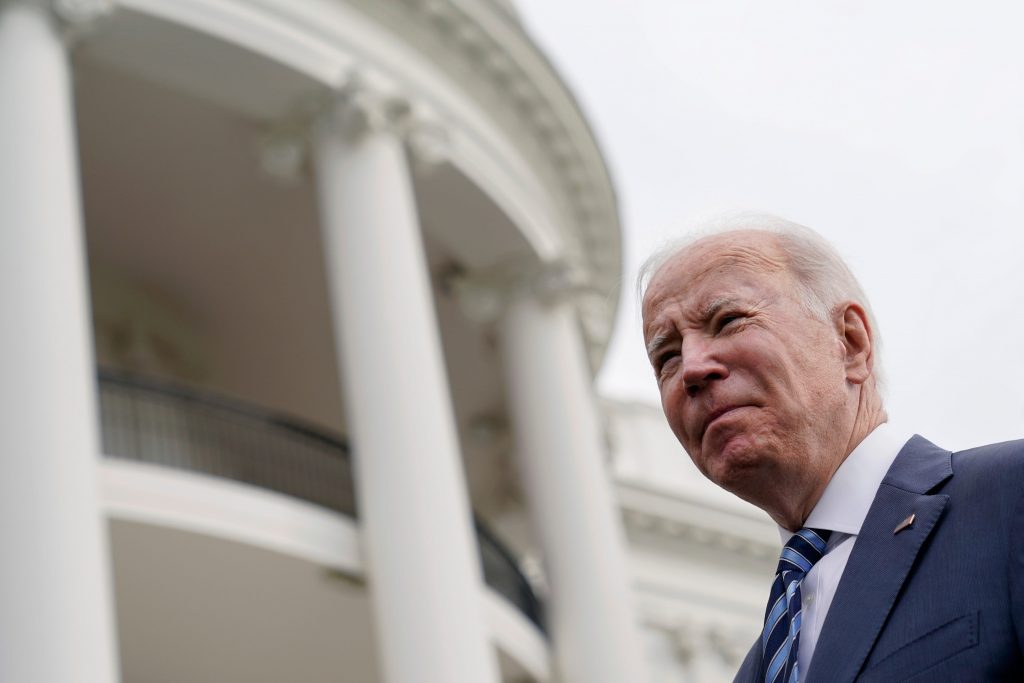- Hickenlooper was late disclosing stock purchases by his wife that are worth as much as $1.2 million.
- Rep. Jamie Raskin didn't properly disclose a stock share exchange for his wife.
- Both have violated the STOCK Act before.
Two prominent Democrats in Congress have violated a federal stock trading law by blowing past deadlines to report their spouses' stock trades.
Sen. John Hickenlooper of Colorado and Rep. Jamie Raskin of Maryland are in violation of the 2012 Stop Trading on Congressional Knowledge Act's disclosure provisions, according to an Insider review of financial filings the lawmakers made with Congress.
Hickenlooper, who ran for president in 2020, failed to disclose purchases of varying classes of stock from by his wife. They include shares of Liberty Media Corporation, Qurate Retail, and Liberty Broadband Corporation in 2021 and early 2022. The stocks were valued between $516,006 and $1.2 million.
Hickenlooper was also late in reporting that his wife sold between $130,004 and $300,000 worth of stock in Liberty Media Corporation and Liberty Broadband Corporation from March 2022.
Lawmakers are only required to report the value of such financial trades in broad ranges.
The senator's wife, Robin Pringle Hickenlooper, is the senior vice president of corporate development at the Liberty Media Corporation, a company with ownership stakes in the Atlanta Braves baseball team, SiriusXM radio, and Formula One racing.
The couple disclosed the stock trades between two months and 14 months late. By law, they should have been disclosed no later than 45 days after the trades were made.
Hickenlooper has filed disclosures late before. He was months — and in two cases, more than a year — late in disclosing five separate stock trades for himself or his wife that, taken together, are worth between $565,000 and $1.3 million, nonprofit news organization Sludge reported.
Hickenlooper did not respond to a list of questions posed by Insider about his latest disclosure.
Raskin pays fine
Jamie Raskin was late disclosing the exchange of stocks his wife, Sarah Bloom Raskin, received when I(X) Investments merged with Net Zero.
The companies invest in sustainable infrastructure and renewable energy — causes Sarah Bloom Raskin has championed. She was on the board of I(X) Investments and received stocks as compensation, but had left at the time of the merger while still retaining stocks.
The document Jamie Raskin filed shows his wife didn't learn of the exchange, valued between $250,001 and $500,000, until a month after it happened. But under House ethics rules the couple still only had until late March to file a report.
Jamie Raskin reported it June 9, about two months late and past the 45-day deadline from the February 9 exchange.
The congressman said he first learned about the exchange on May 17 through his family accountant who was preparing his annual financial disclosures. It then took him two weeks to figure out what happened with the exchange and how it needed to be reported to the US House, he said.
"I got in touch with Ethics staff and explained the situation and they advised filing a PTR," he said, referring to the periodic transaction report documents listing stock trades. "So I submitted the PTR and have also submitted a $200 check for an apparently late filing."
A fine of $200 is standard for late financial disclosures. To confirm payment, Raskin's office provided Insider with a copy of the check made out to the US Treasury as well as a receipt by the Legislative Resource Center.
The Raskins have had an eventful year. Jamie Raskin, who led the 2021 impeachment against former President Donald Trump, is a member of the January 6 Committee to investigate the attack against the Capitol.
In January, President Joe Biden nominated Sarah Bloom Raskin to be the Fed's vice chairwoman of supervision but she withdrew herself from consideration after Sen. Joe Manchin of West Virginia, the most conservative Democrat in the upper chamber, joined Republicans and said he wouldn't support her.
Insider previously reported that Jamie Raskin failed to disclose on his financial reports that Sarah Bloom Raskin held stock in fintech company Reserve Trust. He then didn't disclose that she sold the stock, valued at $1.5 million, until months after deadline.
Jamie Raskin previously explained that he disclosed the sale late because it happened around the same time his son died by suicide. He has not explained why his family didn't report owning Reserve Trust when his wife acquired it, and in the years they held it.
Late disclosures continue despite media scrutiny
Insider's "Conflicted Congress" project and other news outlets have since last year identified 63 members of Congress who have violated the STOCK Act. At least 182 senior congressional staffers have violated the STOCK Act's disclosure provisions, as well.
Insiders' reporting also found numerous examples of conflicts of interest among federal lawmakers — both Democrats and Republicans.
The consequences for violating the STOCK Act are generally minimal, inconsistently applied, and not publicly recorded, Insider has found.
In the US House members often have to keep track themselves of cases in which they might have run afoul of the law and whether they're supposed to pay a late fee.
In the US Senate the process is more automated, with an email going out to staff and members soon after they disclose their trades late.
Coming changes to the law?
Lawmakers on the left and right have introduced several bills to ban or otherwise limit their colleagues — and in some cases, spouses — from buying and selling individual stocks.
Raskin does not personally trade individual stocks, even though his wife holds stocks as compensation. Raskin is a co-sponsor of the Ban Conflicted Trading Act that would prohibit other federal lawmakers from trading stocks. He's also a member of the Committee on House Administration that is considering new rules on congressional stock trading.
Short of an outright ban, the committee may decide to improve ethics training for federal lawmakers and to increase the fine for violating the STOCK Act. Reporting by Insider found that some members and staff can fall short of following the law because they aren't always clear about what the the rules are, despite their best efforts to comply.
Ben Olinsky, senior vice president of structural reform and governance at the left-leaning Center for American Progress, said that harsher disclosure rules wouldn't go far enough.
"To avoid both conflicts of interest and the perception of any such conflicts, members of Congress should either have to move their assets to a blind trust or be banned from owning or selling individual stocks," he said.
"In order for our government to function, voters need to trust that lawmakers have their best interests at heart," said Damon Effingham, the director of strategic partnerships at the watchdog organization RepresentUs. "Continuing to allow members of Congress to trade stocks with little oversight and accountability will further erode public trust in government, and gives additional fodder to anti-democracy forces who want to see our system fail."
Earlier this month a coalition of 16 reform advocates, government watchdog groups, and political organizations urged Biden in a letter to "publicly and actively" push Congress to ban its members from trading individual stocks. RepresentUs was one of the organizations that signed on.
"Legislators across parties, across both houses of Congress, need to unify around a proposal and get it done," Effingham said. "That's one reason we're calling on President Biden to get involved. His voice is critical to getting this issue across the finish line and delivering for Americans who are speaking very clearly on this issue."











